ECCO 1st Council of National Representatives Meeting, held adjacent to UEGW'19
Willem Bemelman, ECCO Secretary
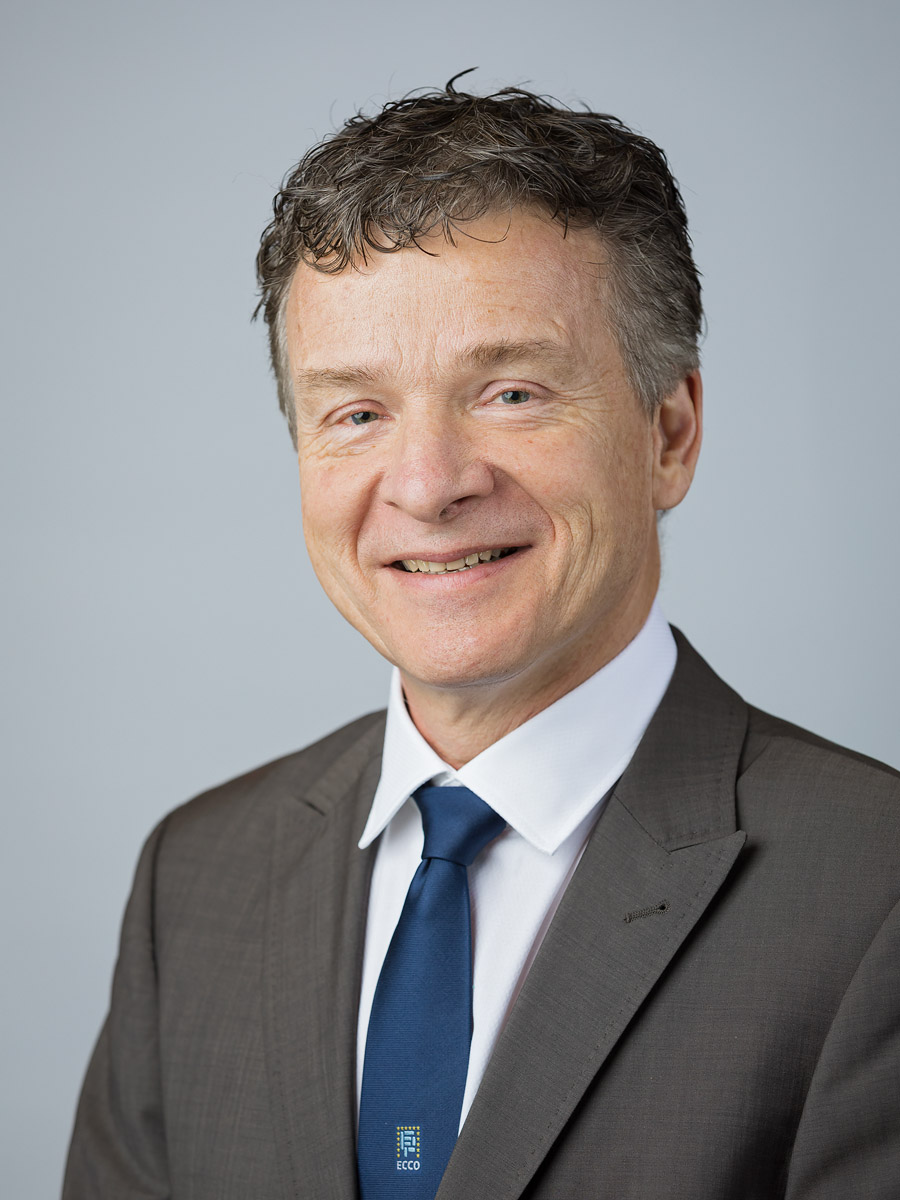 Willem Bemelman Willem Bemelman© ECCO |
On October 19, 2019, ECCO held its 1st Council of National Representatives Meeting adjacent to UEGW Barcelona. The following countries were represented at the meeting: Cyprus, Denmark, Finland, France, Israel, Spain, Italy, Belgium, Bulgaria, Croatia, Estonia, Germany, Greece, Iceland, Latvia, Lithuania, Norway, Poland, Portugal, Romania, Slovenia, the Netherlands, Austria, United Kingdom, Serbia and Sweden.
Topics presented by ECCO Governing Board Officers included the review of relevant results from the Strategic Survey, which had been sent to all ECCO Members at the beginning of the year and to all participants prior to the ECCO 1st Council of National Representatives Meeting. The purpose of the meeting was to deliver information in regard to ECCO Activities and to obtain feedback from the various representatives.
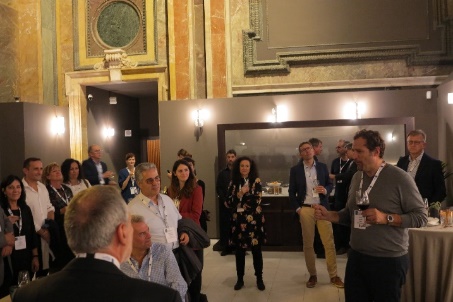 Welcoming words Welcoming words© ECCO |
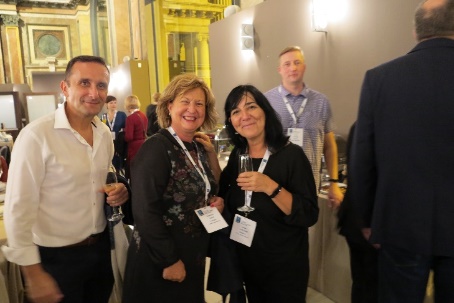 EFCCA Representatives EFCCA Representatives© ECCO |
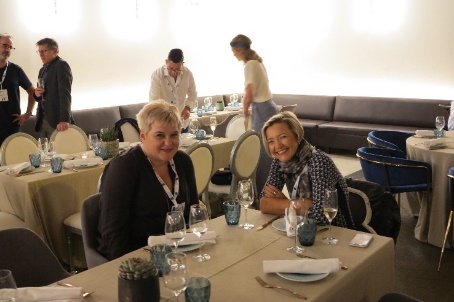 N-ECCO National Representatives N-ECCO National Representatives© ECCO |
Guidelines and Education Presentation (James Lindsay)
The meeting participants were updated about latest developments with respect to ECCO Guidelines, the new Y-ECCO Mentorship programme, the upcoming e-Learning subscription, the open call for destinations of the 2nd IBD Nurse Education Programme and the well-established Educational Workshops.
During the group discussion of ECCO Education, it was emphasised that better interaction between all actors at different levels in the IBD fields is needed – there is room for improvement regarding coordinated cooperation among the stakeholders. ECCO could further enhance the integration of patients and nurses. The education of nurses is very important; indeed, it is crucial for patients, since they receive most information from nurses. As many countries do not yet have IBD Nurses, the IBD Nurse Education Programme is also of huge interest to physicians. Therefore, physicians should also be provided with more information about the nurse programme. Greater integration and involvement of nurses is among ECCO’s goals.
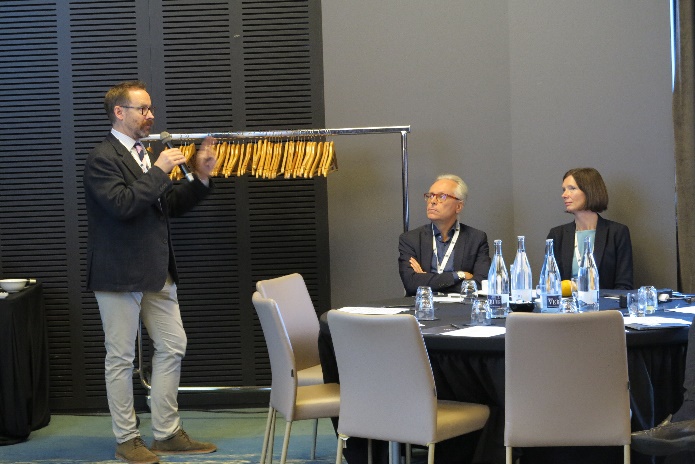 @ ECCO |
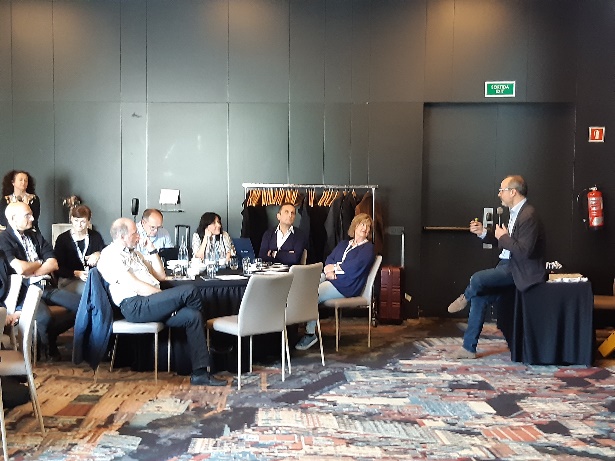 @ ECCO |
Congress Presentation (L. Peyrin-Biroulet)
The Strategic Survey results showed that the programme of ECCO is unique and different. The survey results have strongly confirmed that the Congress structure is appealing. The existing structure of the scientific programme, without parallel sessions, is the preferred format.
Nevertheless, in the group discussions of ECCO Congress, it was mentioned that the Congress programme might be slightly overloaded with basic science for Congress delegates who are more focussed on daily care than on research. In this context a postgraduate course which offers a practical update on diagnosis and treatment could be appealing.
It was announced that the following new initiative of the current ECCO Governing Board would take place for the first time at ECCO’20:
Affiliate ECCO Societies and Talking Global IBD
Thursday, February 13, 2020
18:45–19:45
Becoming an Affiliate ECCO Society will offer societies in non-Member Countries a variety of opportunities, including the possibility to host an ECCO Educational Workshop. Talking Global IBD is an event which will take place prior to the General Assembly at ECCO’20. It will offer an informal environment and the possibility for a lot of interaction with colleagues from outside of Europe, where all organisations will be able to present their posters.
Science and Research Presentation (Gerhard Rogler)
ECCO’s increasing investment in fellowships and grants was outlined, with explanation of the different funding options. Participants were reminded of the open call for the new Scientific Workshop about “Precision Medicine” and of the need to ensure e-Newsletter subscription in order to receive open calls from ECCO on a regular basis.
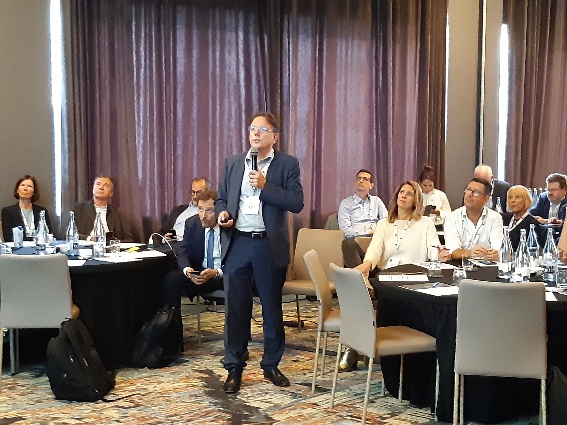 © ECCO |
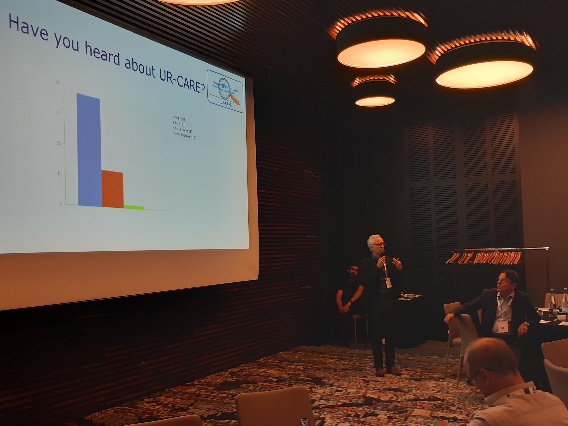 © ECCO |
In addition, Filip Baert provided an update on the UR-CARE project as the Strategic Survey results had indicated considerable awareness of the project together with interest in further information.
UR-CARE is looking for ambassadors in every country to promote the platform at the national level. At the national level, a study group can use UR-CARE independently – only when it comes to global studies does the UR-CARE Steering Committee need to be involved. UR-CARE must also be promoted among the multidisciplinary team; for example, in UR-CARE the surgical variables are very well defined.
During the group discussions of UR-CARE, the question was raised of whether UR-CARE allows the uploading of copies of the national database in order to avoid duplication of work. It was clarified that the processing of patient data comes with safeguarding rules. Therefore, the simple uploading of a database is not feasible. However, once the baseline information has been completed in UR-CARE, the platform can be open in the background during the patient visit and the physician can quickly update the follow-up visit in most cases by themselves. Eventually this avoids duplication of work as the database also offers a lot of tools to pull reporting data and patient reports. It will actually save a lot of work and energy.
It is also important to bear in mind the fact that if UR-CARE is used as an international database, the “national identity” is not lost. On the UR-CARE platform, the established user group can still be called a national database. UR-CARE is everyone’s registry and it should not be perceived as an ECCO Database but rather as a platform for registries, allowing them to cooperate. The individual hospitals registering in UR-CARE are still in charge of their own data.
New projects and additional outcomes of group discussions
ECCO is currently finalising its Position Statement on Quality of Standards of Care. In the context of the round table discussions, the ECCO National Representatives and N-ECCO National Representatives were asked to provide feedback and suggestions on the draft lists of quality standards according to thematic structure (IBD unit and interdisciplinary team, assessment and treatment, infections, patient registry and patient education).
The aim of the project was to select, in a multidisciplinary panel, criteria that are considered the minimum standards in IBD care which could also be used for negotiations with governments. This list should provide insights into future directions for the field of IBD in Europe. It is intended as a helpful tool for people aiming to improve their institutional standards. Institutes and National Groups are free to proceed in a different way. It is not intended as a basis for certification, nor to send a message of exclusivity.
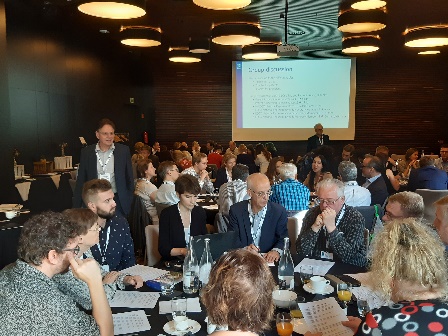 © ECCO |
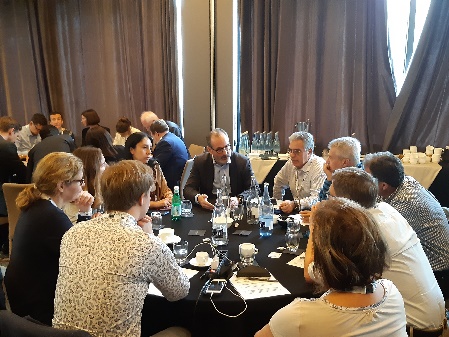 © ECCO |
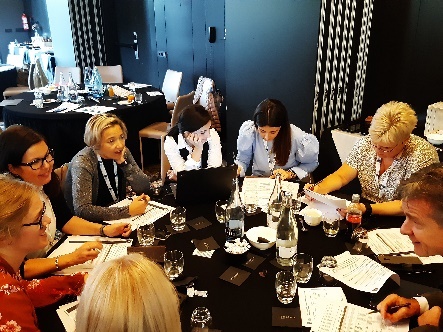 © ECCO |
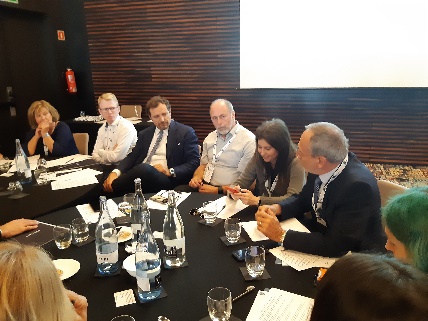 © ECCO |
In order to understand whether these quality standard points could be reliable and applicable to IBD units in different ECCO Countries, the participants in the respective round table discussions were asked to indicate which quality standard points are currently available in their own units by ticking off corresponding checklists.
The group discussions of the list of indicators concluded that there is a difference between what represents a ‘nice to have’ and what is a ‘must have’ for IBD centres/units. Based on the received feedback, major changes were made to some of the items on the draft quality standards of care lists and a new online voting session was held to approve these changes. The changes were approved almost unanimously by the panellists.
In addition, members of the Y-ECCO Committee have initiated a communication toolbox project. Dominik Bettenworth reported that the overall goal of this toolbox project is to come up with key messages (in the form of replies to questions) in lay language that young doctors can use. The purpose is to address the unmet needs of young doctors who are having their first experiences in an outpatient clinic and are finding some questions hard to answer. EFCCA expressed an interest in being involved in this project as well. Suggestions were made to avoid starting from scratch and to take into account existing advice. Upon completion of this project, it would be good to publish it and make it available for download.
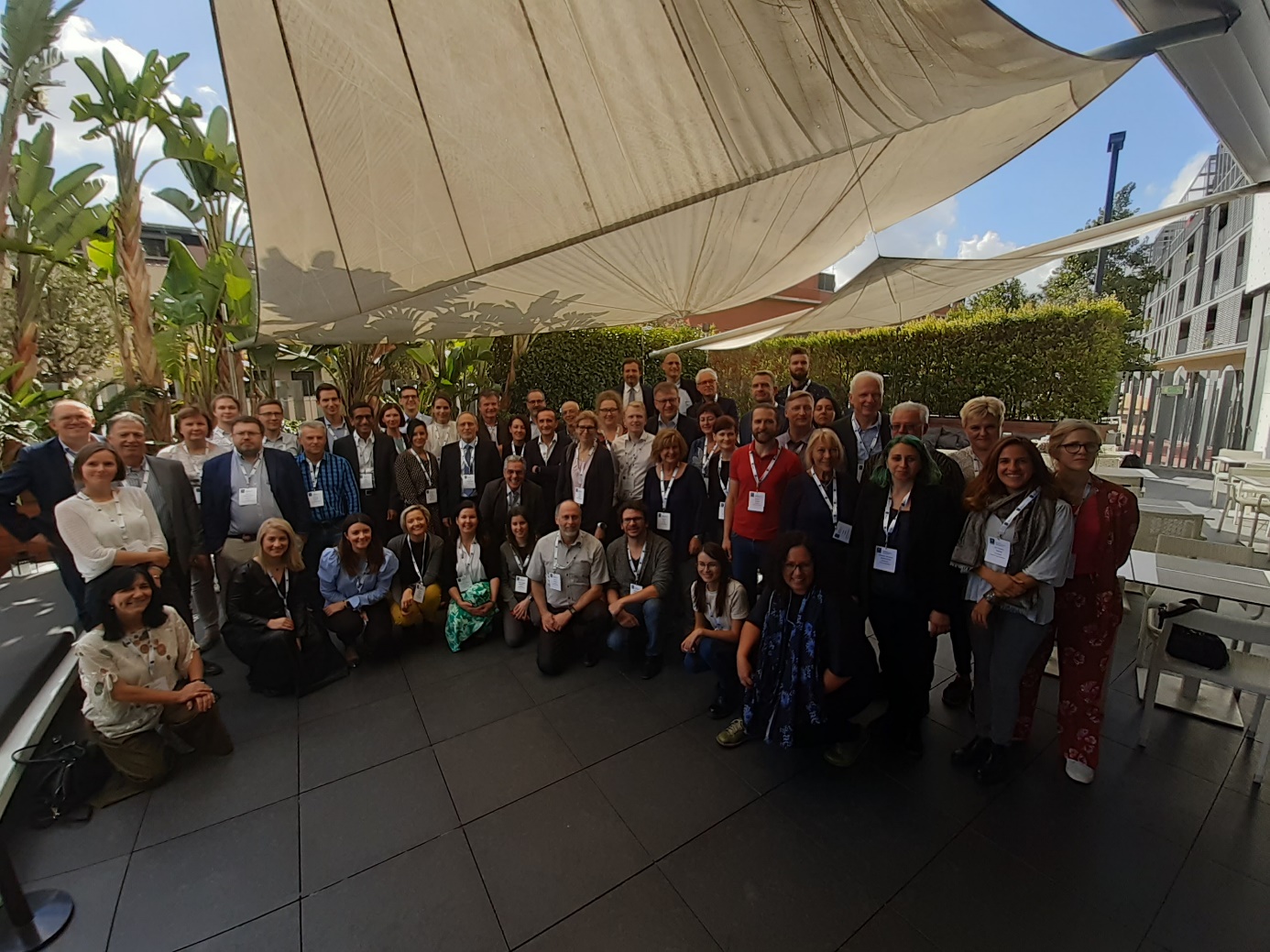 Confirmed participants: 33 National Representatives, 25 Patient Representatives, 11 N-ECCO National Representatives, 7 Governing Board Members, 5 Honorary Members, 1 N-ECCO Committee Representative Confirmed participants: 33 National Representatives, 25 Patient Representatives, 11 N-ECCO National Representatives, 7 Governing Board Members, 5 Honorary Members, 1 N-ECCO Committee Representative© ECCO |


